talk & speaker
Distillato di Abnormal DevOps Iterations
Abnormal DevOps Iterations è un podcast dove vengono invitati ospiti e personalità del mondo IT e DevOps. Pur essendo piuttosto giovane, il primo episodio è dell'Ottobre 2024, ha già avuto come ospiti personaggi come Patrick Debois e Kris Buytaert (tra i fondatori del movimento DevOps), Luke Kanies e Adam Jacob (creatori rispettivamente di Puppet e Chef), Manuel Pais (autore di Team Topologies) e molti altri. In questa presentazione facciamo una sintesi dei principi e concetti più interessanti espressi dagli ospiti di Abnormal DevOps Iterations. Un compendio, denso, brillante e profondo, di opinioni, riflessioni e pensieri sul mondo IT e DevOps da parte di protagonisti illuminati e attori della comunità DevOps.

Alessandro Franceschi
More Op than Dev. Since last century.
Alessandro Franceschi is working in IT since 1995 when he founds a Linux-based Internet Service Provider in Italy. In 2007, he starts using Puppet (version 0.21) while working as a sysadmin at the Bank of Italy. Over the years he develops the example42 Puppet modules and deliveres Puppet training and consulting over the world. In 2012 he is one of the organisers of DevOps days in Rome, pioneering DevOps principles in Italy. Now, he does things with Puppet, wonders what to do and guesses what's to come.
Observing Python applications with OpenTelemetry
In this talk we'll see the options we have to add observability to Python applications with OpenTelemetry without touching our application code. In OpenTelemetry this is called autoinstrumentation or zero-code instrumentation. We'll see:
- - The OpenTelemetry operator, a Kubernetes operator to manage collection and inject autoinstrumentation to the pods - OpenTelemetry Python own autoinstrumentation solution based on the opentelemetry-instrument wrapper

Riccardo Magliocchetti
Senior Software Engineer @ Elastic
Riccardo is a Python software developer. In the years has contributed to quite a different range of open source software and run a bunch of local meetups. These days is working on OpenTelemetry and is a maintainer for the OpenTelemetry Python SIG.
Cluster API: IaC per Kubernetes
Kubernetes è fondamentale per l’orchestrazione di container, ma la gestione dei cluster stessi può essere impegnativa. Cluster API, standard open-source in rapida evoluzione ad adozione crescente, semplifica il deployment, la scalabilità e la gestione del ciclo di vita dei cluster Kubernetes. Questo talk fornisce una panoramica pratica di Cluster API, con esempi concreti e best practice per DevOps e amministratori di sistema. Punti chiave:
- - introduzione a Cluster API e ai suoi vantaggi; - automazione del deployment e della gestione di cluster Kubernetes; - integrazione con i principali provider cloud e ambienti on-premises.

Luca Barzè
Solution Architect @ SUSE
Luca lavora come Presales Engineer presso SUSE, dove mette a disposizione la sua conoscenza dei sistemi IT, dei servizi cloud, e del mondo cloud-native per supportare il processo di vendita. Con un background in fisica e un forte interesse per le innovazioni tecnologiche, apprezza il fatto di aiutare i clienti e la community a orientarsi tra le esigenze tecnologiche. La sua esperienza spazia da ruoli di consulenza sul cloud, all’architettura dei big data e all’innovazione IT.
Onboarding a Historical Company on the Cloud Journey, or from Experimentation to Success
This session, oriented on governance and strategy, will unveil you the challenges we have encountered and the solutions we've applied to succeed in onboarding one of the most important public companies in France to the Azure cloud. Real life customer feedback and insights here.

Marius Zaharia
Cloud Solutions Architect @ Société Générale. Azure MVP
From the late 2000s, when the cloud computing took off, Marius Zaharia followed up closely the evolution of cloud technologies, with focus on IaaS, PaaS or hybrid architectures, and particularly in Azure, Microsoft’s cloud, and Amazon AWS. At Société Générale, an European leading financial company, Marius work as a Cloud Solutions Architect, implementing cloud-based infrastructure and application solutions. As Azure MVP, Marius works closely with Microsoft product teams on giving feedback and insights on various Azure services and technologies. Marius is a passionate and proactive member and organizer of the global and French Azure community (Azure User Group France), organizer and speaker at cloud-related events and conferences, and - in his limited spare time left - guitar player and singer.
Kubernetes: L'Architettura di Resilienza Operativa Digitale conforme al DORA
Nel panorama digitale contemporaneo, il Digital Operational Resilience Act (DORA) stabilisce criteri rigorosi per la resilienza ICT nel settore finanziario. Kubernetes emerge come una soluzione tecnologica chiave che non solo supporta, ma potenzia intrinsecamente i requisiti normativi di DORA. L'intervento esplorerà come l'architettura di Kubernetes traduca concretamente i principi fondamentali di DORA

Diego Braga
CTO @Krateo PlatformOps
Diego Braga is CTO at Krateo PlatformOps. Diego has spent the last 10 years building open-source architectures for customers, from embedded devices to large-scale distributed systems. Most recently he has been focused on the open cloud infrastructure space, and on emerging patterns for cloud-native applications.
Linux user namespaces: a blessing and a curse
Unprivileged Linux user namespaces is a rather controversial topic in the security community, Linux Kernel community and in software engineering in general. On one side it allows building unprivileged and sandboxed services and applications, which would otherwise require elevated privileges to successfully run and provide features to their users. Not granting privileges to such applications follows the least privilege principle and makes our systems more secure. On the other side, this mechanism has been repeatedly used in various vulnerabilities and exploits as a starting attack vector, multiplying the damage and impact of these exploits. And since it became so popular within the offensive industry, many Linux distributions and security guidances started recommending disabling this feature altogether. There is an ongoing debate whether unprivileged user namespaces provide more security or make the system more vulnerable. In this presentation we will review how user namespaces might help building sandboxed secure applications. But we will also show how a recently discovered Linux kernel bug turned into a security vulnerability just because user namespaces are available on the system. Finally, we will give recommendations on how to get the best of both worlds: allow well-behaved applications to utilize user namespaces for better security, while blocking the feature for potentially malicious users/code.

Ignat Korchagin
Cloudflare, Linux Guru
Ignat is a systems engineer at Cloudflare working mostly on Linux, platforms and hardware security. Ignat’s interests are cryptography, hacking, and low-level programming. Before Cloudflare, Ignat worked as a senior security engineer for Samsung Electronics’ Mobile Communications Division. His solutions may be found in many older Samsung smart phones and tablets. Ignat started his career as a security researcher in the Ukrainian government’s communications services.
Hosting AI models with Ray and GKE: why, how and what for?
Have you ever wondered how Kubernetes can make deploying AI models easier? Or why has Ray become the go-to tool for scaling AI across clusters? In this talk, we’ll dig into the how, why, and what of running AI models on Google Kubernetes Engine (GKE) with Ray, perfect for devs, DevOps, and anyone pumped about AI and ML. We’ll start from scratch, breaking down why Kubernetes is such a game-changer for AI, how Ray solves tough distributed processing challenges, and even how to set up ML pipelines that flow from CI to CT—all on Kubernetes. Plus, we’ll bring it all to life with a live demo, hosting a stable diffusion model right before your eyes! If you want to level up your AI model deployment, this session is your roadmap.
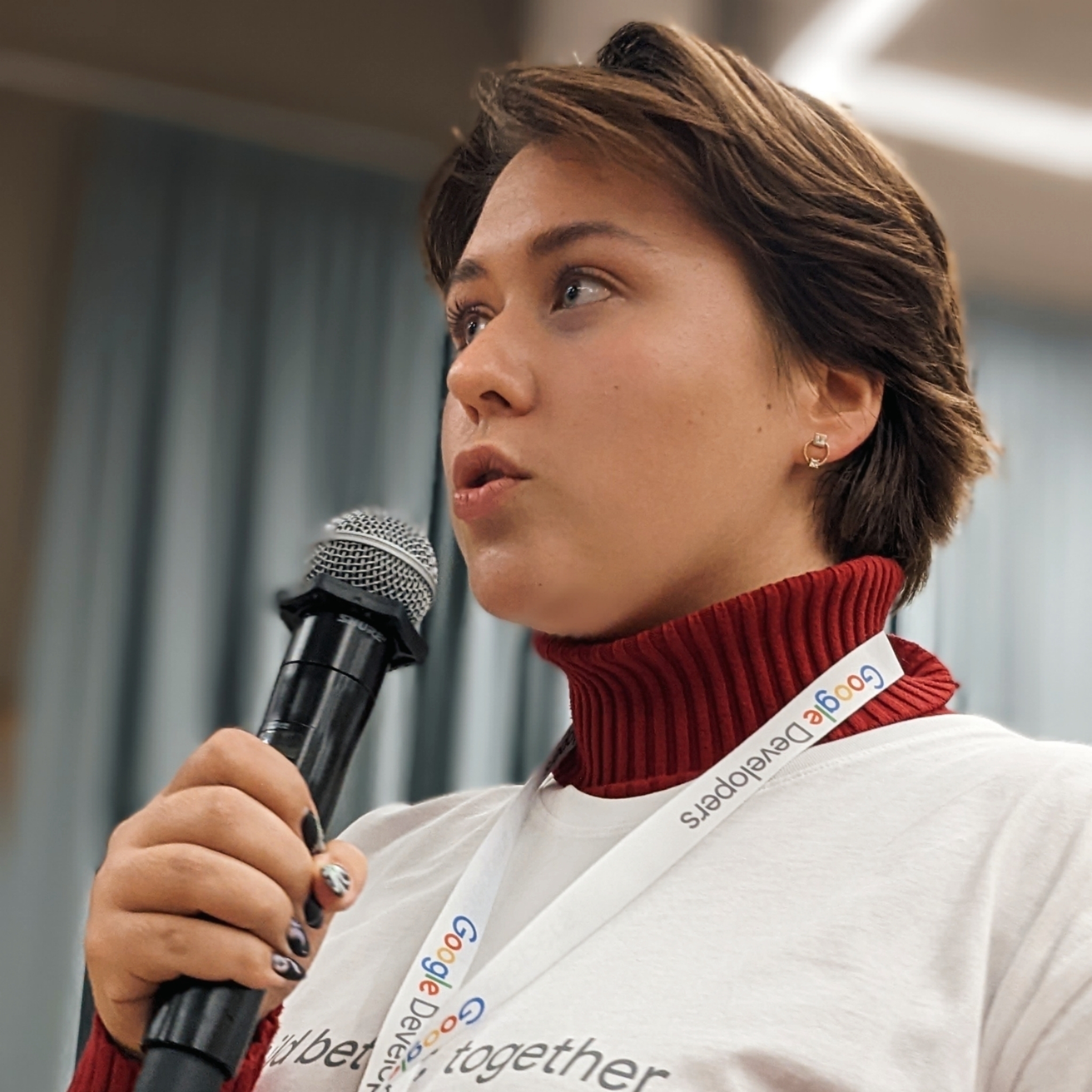
Kateryna Hrytsaienko
Software Engineer Consultant Valtech | Woman Techmakers Ambassador| GDSC Mentor
I'm a Software Engineering Consultant at Valtech, Google Developer Student Club Menor, Google Woman Techmakers Ambassador, TechWriter at Baeldung, and a passionate Cloud and CI/CD Automation Enthusiast. I mostly work with E-commerce projects, developing composable solutions and contributing to libraries for company-wide use. I summarize my experience in my blog https://medium.com/@ekatereanagricaenko and on the Baeldung platform
ToPlay on Google Cloud
Come può Google Cloud essere d'aiuto ad un grande festival del Gioco da Tavolo e di Ruolo? E se questo Festival fosse proprio di Torino? Il TO Play è la celebrazione del gioco di ruolo e da tavolo per gli appassionati di lungo corso e per i curiosi alle prime esperienze. Giunto ormai alla sua settima edizione la manifestazione ha al suo attivo oltre 240 tavoli da gioco dove chiunque potrà trovare emozioni, divertimento e, in fin dei conti, un’avventura. Vedremo come sia stato possibile riuscire a sviluppare una web application per le iscrizioni agli oltre 500 eventi in programma e far gestire più di 2000 posti gioco a disposizione di associazioni e sponsor, oltre alla creazione e gestione di una considerevole banca dati di giochi in continuo aggiornamento (10.000 giochi tra giochi da tavolo e giochi di ruolo). Il tutto in maniera serverless e altamente scalabile, con l'utilizzo di Google Cloud, microservizi in Quarkus e Firebase. L'applicazione sarà riuscita a reggere la fruizione delle ricerche in parallelo? Sarà riuscita a scalare opportunamente? Quali sono stati gli aspetti chiave e vincenti di questa applicazione? E soprattutto, a quale costo economico?
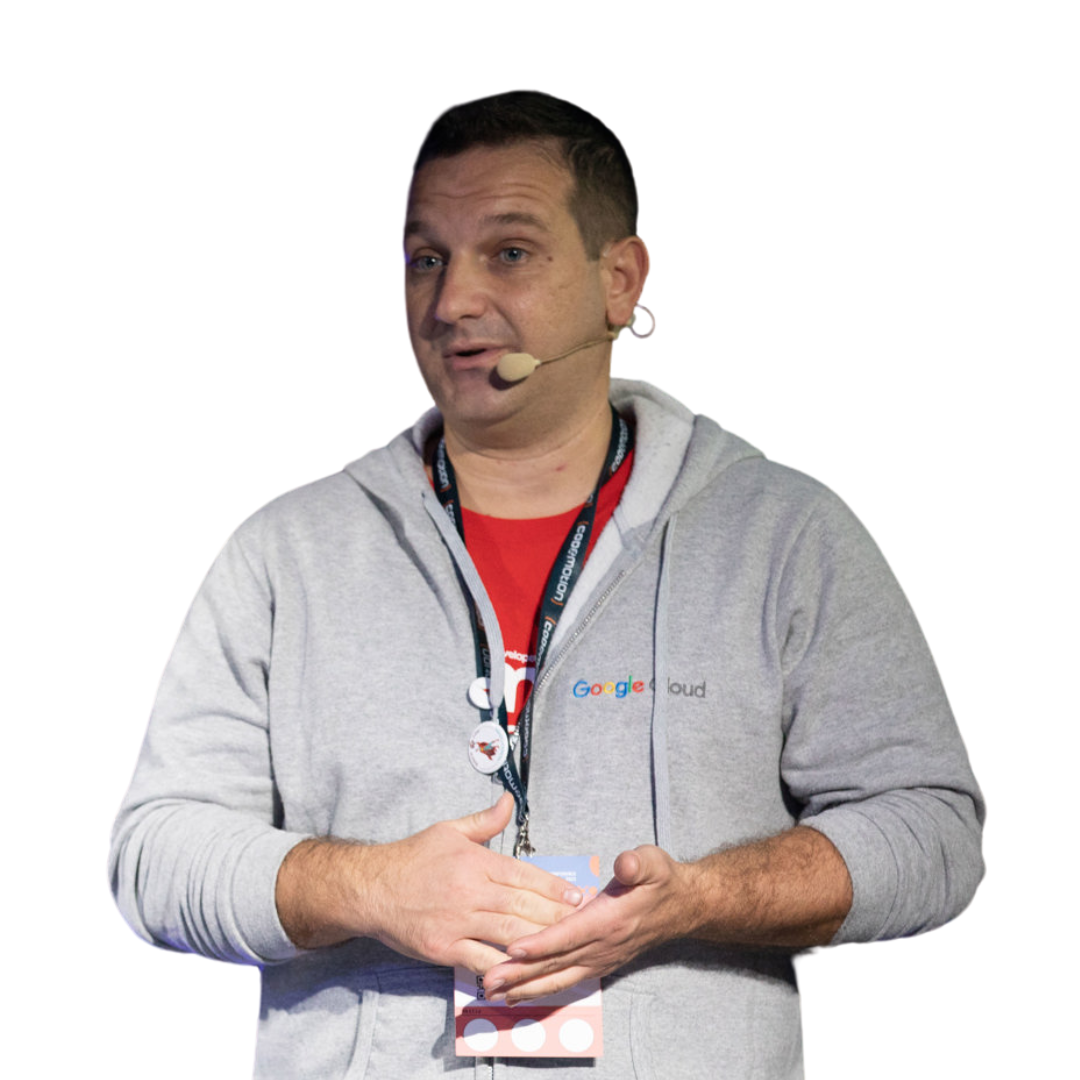
Gianni Forlastro
CTO @ Finwave
Google Champion Innovator, CTO@Finwave, GDG Cloud Torino & Flutter Torino Community Lead. Inizia la sua avventura nell'informatica con il suo primo Intel 80386 per poi laurearsi in Informatica presso l'Università degli Studi di Torino. Prosegue la sua formazione con due master, uno in 'Comunicazione Digitale, Web Marketing e Social Media Management' e il secondo in 'Cloud Computing'. Dopo esser stato sviluppatore web & mobile, attualmente è CTO presso Finwave, docente di corsi tecnici e assistente universitario. Inoltre è co-organizzatore del droidcon italy, Swift Heroes e Flutter Heroes dalle loro prime edizioni. Nel 2018 fonda il GDG Cloud a Torino dove, con entusiasmo, organizza sessioni, meetup e workshop in ambito cloud. Nel 2023 diventa Google Champion Innovator in ambito Cloud 'Serverless App Development'. Nel tempo libero è uno dei content creator Italiani più seguiti su Instagram in ambito giochi da tavolo, videogiochi e fiere ludiche con il nickname @mosquitoman81.
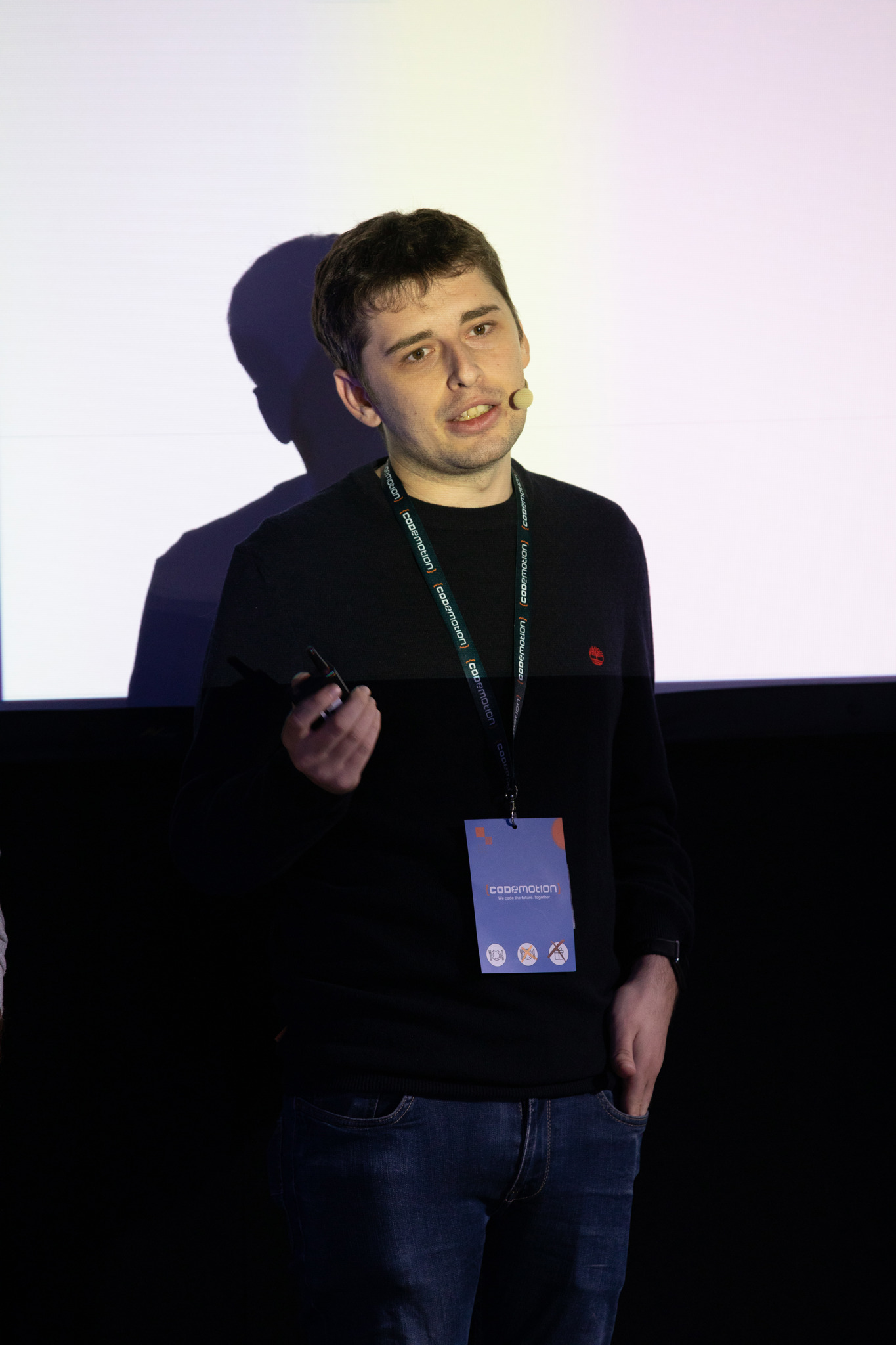
Francesco Pirrone
Fullstack developer @ Finwave
Graduated in Computer Science from the University of Turin, he is a full-stack developer at Finwave, where he is responsible for the design and development of distributed systems. Nerd at 99%, he is trying to stay in touch with the real world for the remaining 1% of his day. Since 2018, he is one of the Community Leader for GDG Cloud Turin.
[Lightning Talk in English] Tired of Jenkins downtime disrupting your CI/CD pipelines?
As your teams grow and/or workloads increase, ensuring your CI/CD pipelines stay up and running—without bottlenecks or downtime—becomes critical. Relying on a single Jenkins controller or manual scaling simply isn’t sustainable. During my 15-minute talk I will explore how to achieve uninterrupted operations. At the end of my presentation you will get ready to say goodbye to downtime and hello to uninterrupted innovation!

Neus Samir Escruela
Senior Solutions Architect @ Cloudbees
Neus is an accomplished DevSecOps Solutions Architect based in Barcelona, with a wealth of experience spanning systems, operations, and development. She has refined her skills in consulting and architecture, enabling organizations to drive secure and impactful innovation through automation and seamless integration. Prior to joining CloudBees, Neus built a robust career in solution architecture and engineering, serving as a Solutions Architect at Stripe, a Lead Solutions Engineer and Customer Solutions Engineer at Paack, and a Principal Solutions Engineer at CPM International. She also held roles as a Security System Consultant and .NET Developer at CleverTask IT Solutions, highlighting her strong technical expertise and problem-solving abilities. Outside of work, Neus is a passionate coder who enjoys tackling creative and technical challenges in her spare time.
[Lightning Talk] Lotta ai bot dannosi
Con l'aumento della frequenza e della sofisticazione degli attacchi Distributed Denial of Service (DDoS) e dei Bot dannosi, è essenziale restare all'avanguardia con strategie di difesa innovative e robuste. Questo intervento esplorerà come Fastly protegge i suoi clienti dagli attacchi dei bot dannosi. Che tu sia un ingegnere di rete, un professionista della sicurezza o uno sviluppatore, scoprirai come proteggere infrastrutture critiche e garantire l'alta disponibilità anche di fronte a minacce informatiche in continua evoluzione.
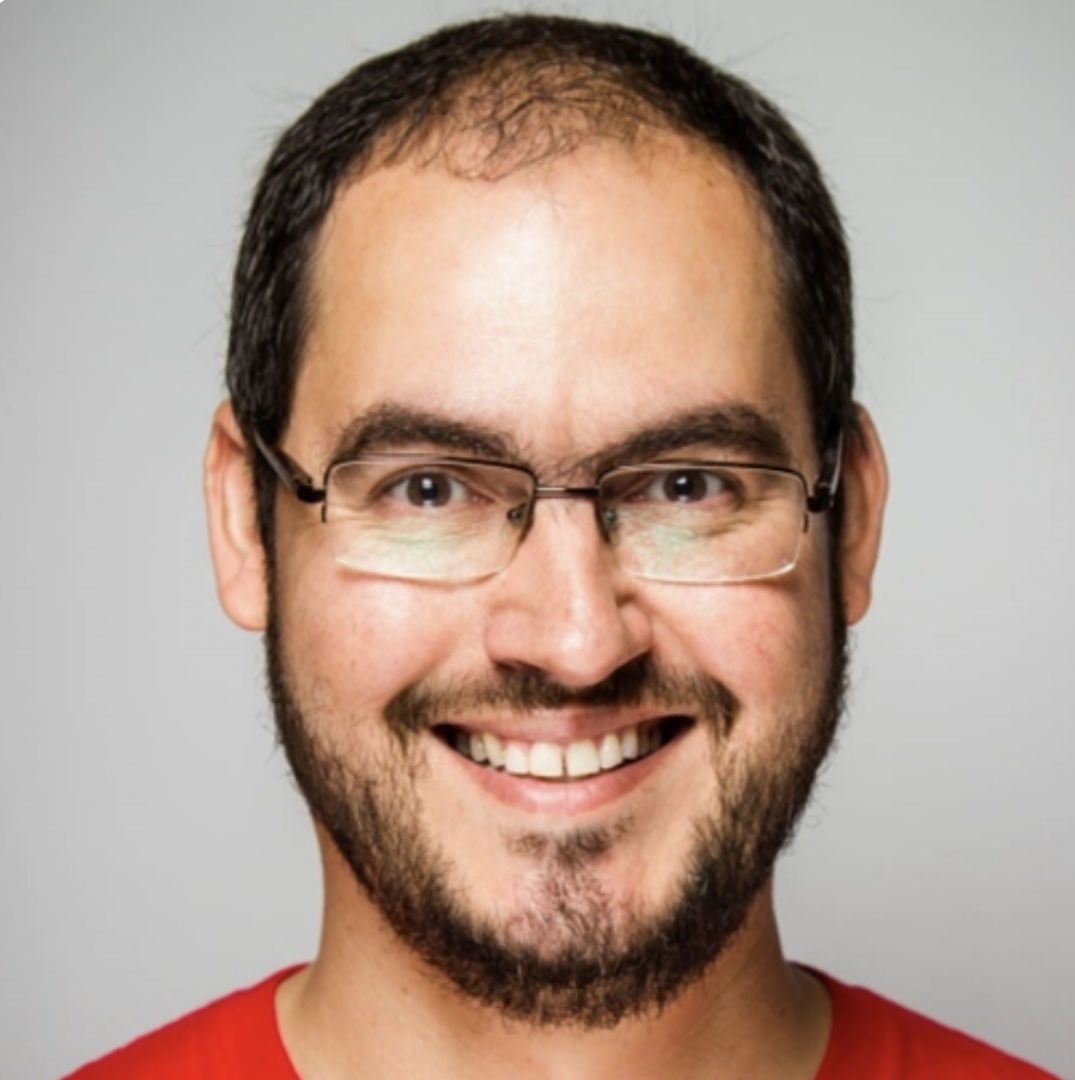
Fernando Bitti Loureiro
Principal Sales Engineer @ Fastly
Fernando has 20 years of experience as a Sales Engineer. He started his career in Brazil and has lived in Spain since 2006. Since then, he has mainly worked with Enterprise clients in Southern Europe, the Middle East and Latin America. Since 2017, he has been Staff Sales Engineer at Fastly, where he has worked on website acceleration projects for clients such as Atresmedia, eDreams or Promofarma. Previously, he also held the position of Sales Engineer at Edgeware, Level 3, HP and 3Com.
Fine grain access control for Kubernetes
Access control is a cornerstone of Kubernetes security, ensuring that only authorized users can view or modify cluster resources. While Kubernetes provides built-in mechanisms for access control, these are often too coarse-grained, making it challenging to define precise or, when necessary, customized permissions, such as the ability to define deny roles or set expirations on grants. In this talk, we will introduce the SpiceDB Kubernetes API Proxy, a powerful solution that integrates with SpiceDB—the leading open-source authorization system that embraces and extends the model used by Zanzibar, Google’s internal authorization solution. Attendees will learn how this proxy enables granular access control for Kubernetes APIs, offering enhanced security and flexibility for managing permissions in dynamic environments.
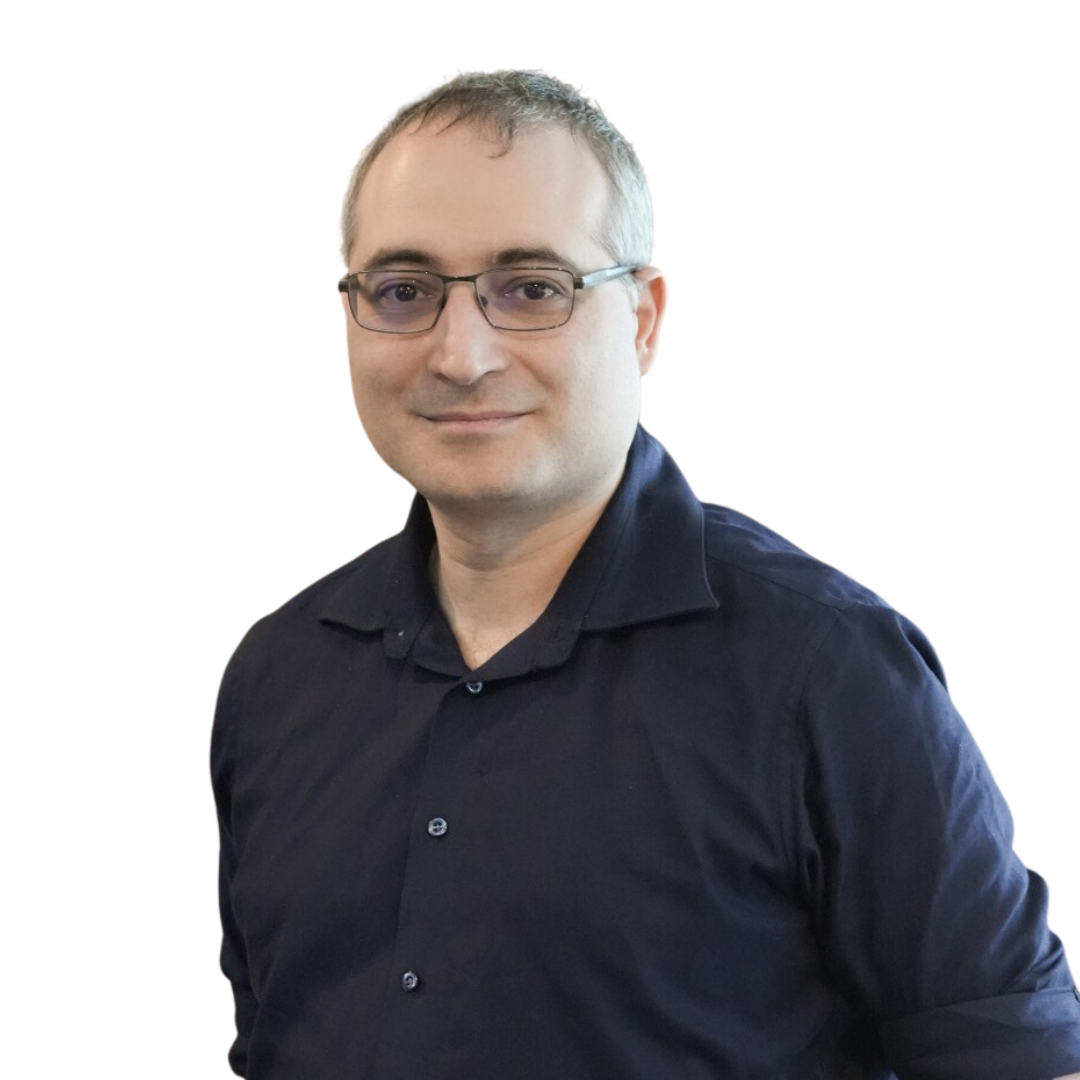
Joey Schorr
CTO @ AuthZed
Joey Schorr is a cofounder and CTO of AuthZed. Before working on AuthZed, Joey was cofounder and founding engineer of Quay.io, the world's first private container registry. Joey has a love of web technology, having pioneered sourcemaps for debugging of compiled languages in web browsers
[Lightning Talk] FinOps fatte bene: storie di (Anti)Pattern e architetture spendaccione per imparare dagli errori
Fare FinOps non è solo ridurre i costi in modo schizzofrenico: prima di tutto è un processo continuo e culturale che parte dalla fase di progettazione di un’infrastruttura. Esploreremo tre casi reali che hanno lasciato il segno - non sempre in senso positivo - per individuare quali best practice tecniche ti eviteranno brutte sorprese in bolletta. Dal capire perché 'meno è meglio' quando si dimensionano le risorse, all’allineare i costi al modello di business (addio finti SaaS!), fino alla scoperta che l’infrastruttura da manuale è più dannosa che altro. Attenzione: la visione di certe architetture potrebbe urtare la vostra sensibilità e il vostro buon senso.
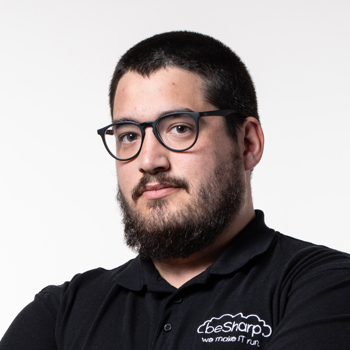
Nicola Ferrari
Cloud Infrastructure Line Manager @ BeSharp
Amo progettare infrastrutture informatiche, occuparmi di reti, lavorare con server e armeggiare con l’hi-tech. Sono un Cloud Architect pigro e si sa che la pigrizia è la miglior virtù per un informatico, perché 'porta ad automatizzare i processi per trovare soluzioni creative e raggiungere il miglior risultato possibile!'
[Lightning Talk] DevOps for Private AI: A Scalable Platform for Training and Inference Using Kubeflow
In questo lightning talk esploreremo come costruire una piattaforma di AI privata utilizzando Kubeflow, concentrandoci sugli aspetti pratici del training distribuito e dell'inference in produzione. Attraverso demo concrete, mostreremo come configurare pipeline di training su cluster multi-GPU e come deployare modelli in produzione con scaling automatico. Vedremo esempi reali di manifesti Kubernetes per gestire workload di machine learning, con particolare attenzione all'ottimizzazione delle risorse e al monitoring delle performance. Una sessione pratica pensata per DevOps engineer e SRE che devono supportare team di data science con infrastrutture ML private e scalabili.
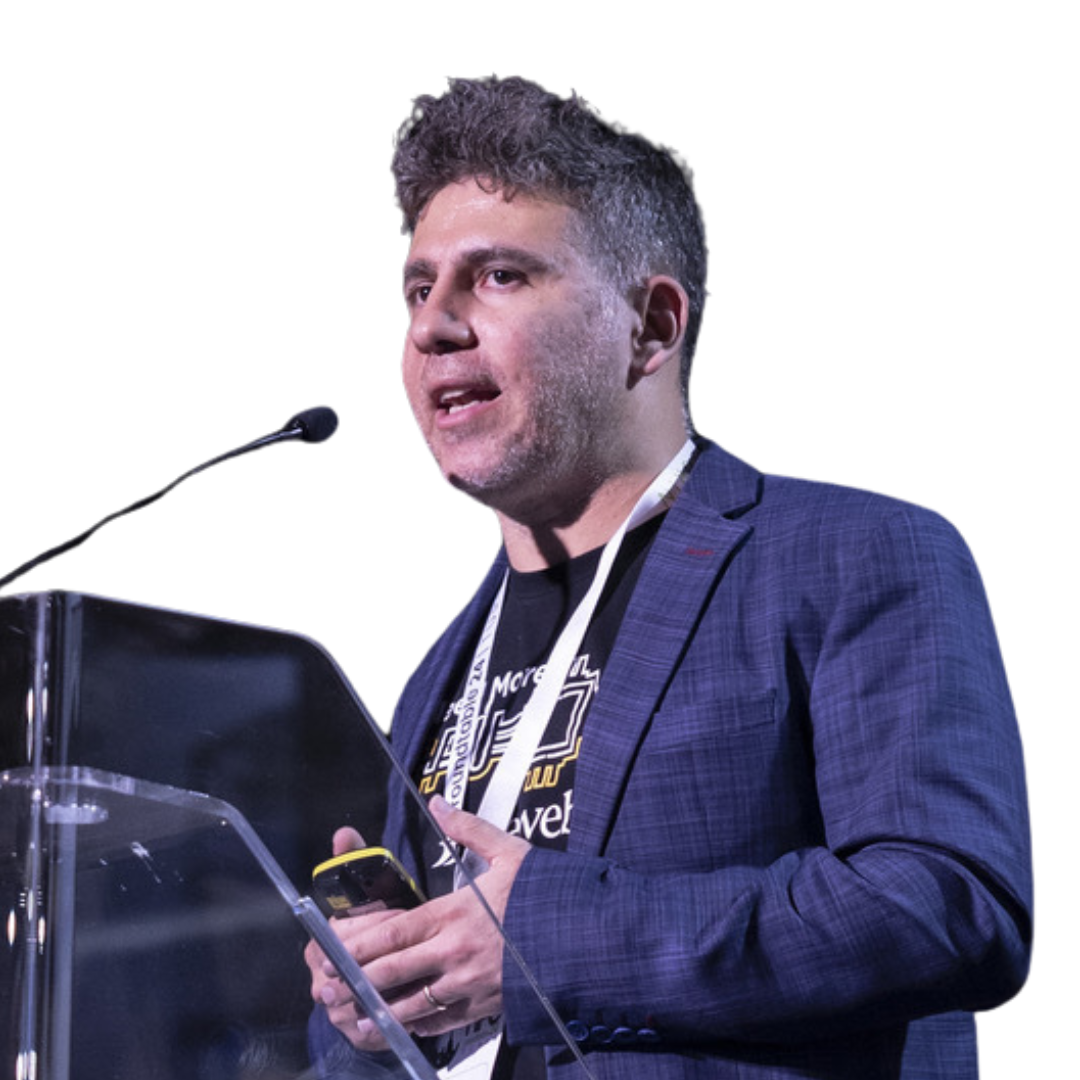
Marco Cristofanilli
Head of AI Cloud @ Seeweb
Head of Artificial Intelligence in Seeweb con oltre 20 anni di esperienza nel settore IT e una passione particolare per il mondo opensource e le tecnologie Kubernetes. Specializzato in cloud computing e infrastrutture GPU, progetta architetture cloud scalabili per l'elaborazione di modelli di intelligenza artificiale.
The tech behind weather forecasting: How technology keeps you ahead of the weather
Curious about how Netherlands biggest weather platform manages to predict the weather with such accuracy while serving millions of users every day? Join us for an insightful dive into the technology powering Buienradar’s meteorological marvel. In this down-to-earth conference talk, we’ll take a closer look at the nuts and bolts of Buienradar’s operations. Discover how Buienradar’s scalable infrastructure and clever algorithms work together to process vast amounts of data, providing users with reliable weather forecasts at their fingertips. We’ll explore the challenges of managing such a high volume of users and data, discussing practical solutions and lessons learned along the way. From data handling techniques to performance optimization, we’ll cover it all in a relatable and accessible manner. We will cover our journey to kubernetes, how our platform engineering works, how our architecture looks like, how we maximize our observability using grafana and much more. Whether you’re a tech enthusiast, a weather aficionado, or simply curious about how your favorite weather app works, this talk is for you. Join us as we peel back the curtain on Buienradar’s technology, demystifying the complex world of weather forecasting in a way that’s easy to understand and appreciate.

Neel Bhatt
Chapter Lead & Solutions Architect @ RTL
Neel is a tech enthusiast, blogger, writer, speaker, and solutions architect. He has 10 years of professional experience. Apart from being a developer, he is an award-winning tech blogger. He likes to stay up-to-date with the latest technology stack, and he likes to share his knowledge with the community. He often arranges RTL meetups to share knowledge. He is a DZone MVB and Top 4% overall on the StackOverflow site. You can find him at his site: https://neelbhatt.com
Practical introduction to OpenTelemetry tracing
Tracking a request’s flow across different components in distributed systems is essential. With the rise of microservices, their importance has risen to critical levels. Some proprietary tools for tracking have been used already: Jaeger and Zipkin naturally come to mind. Observability is built on three pillars: logging, metrics, and tracing. OpenTelemetry is a joint effort to bring an open standard to them. Jaeger and Zipkin joined the effort so that they are now OpenTelemetry compatible. In this talk, I’ll describe the above in more detail and showcase a (simple) use case to demo how you could benefit from OpenTelemetry in your distributed architecture.

Nicolas Fränkel
Developer Advocate @ Loft Labs
Developer Advocate with 15+ years experience consulting for many different customers, in a wide range of contexts (such as telecoms, banking, insurances, large retail and public sector). Usually working on Java/Java EE and Spring technologies, but with focused interests like Rich Internet Applications, Testing, CI/CD and DevOps. Also double as a trainer and triples as a book author.
ChatOps in Action: Come unire Automazione e Collaborazione con Notifiche e KPI in tempo reale
Scopri come utilizzare ChatOps per rivoluzionare la gestione e il monitoraggio delle operazioni DevOps. Questo speech esplora una soluzione avanzata che sfrutta le chat per tracciare richieste di supporto, analizzando i tempi di risoluzione e categorizzando le problematiche più frequenti. Inoltre, vedremo come integrare notifiche da strumenti chiave come ArgoCD e Kubernetes per un sistema di monitoraggio centralizzato. Il risultato? Un ambiente collaborativo che combina dati, automazione e analisi per migliorare l'efficienza e il processo decisionale del tuo team DevOps.

Michele Sacchetti
Team Leader Devops @ Aruba
Passionate for technology and focused on DevOps methodology, can't stop automate things and having everything work in the best way for everyone. Working in Aruba since 2022 he is responisble to unify CI/CD pipeline across several project spacing from Kuberenes ecosystem via Helm/ArgoCD/Istio to classical infrastructure via Ansible/Awx
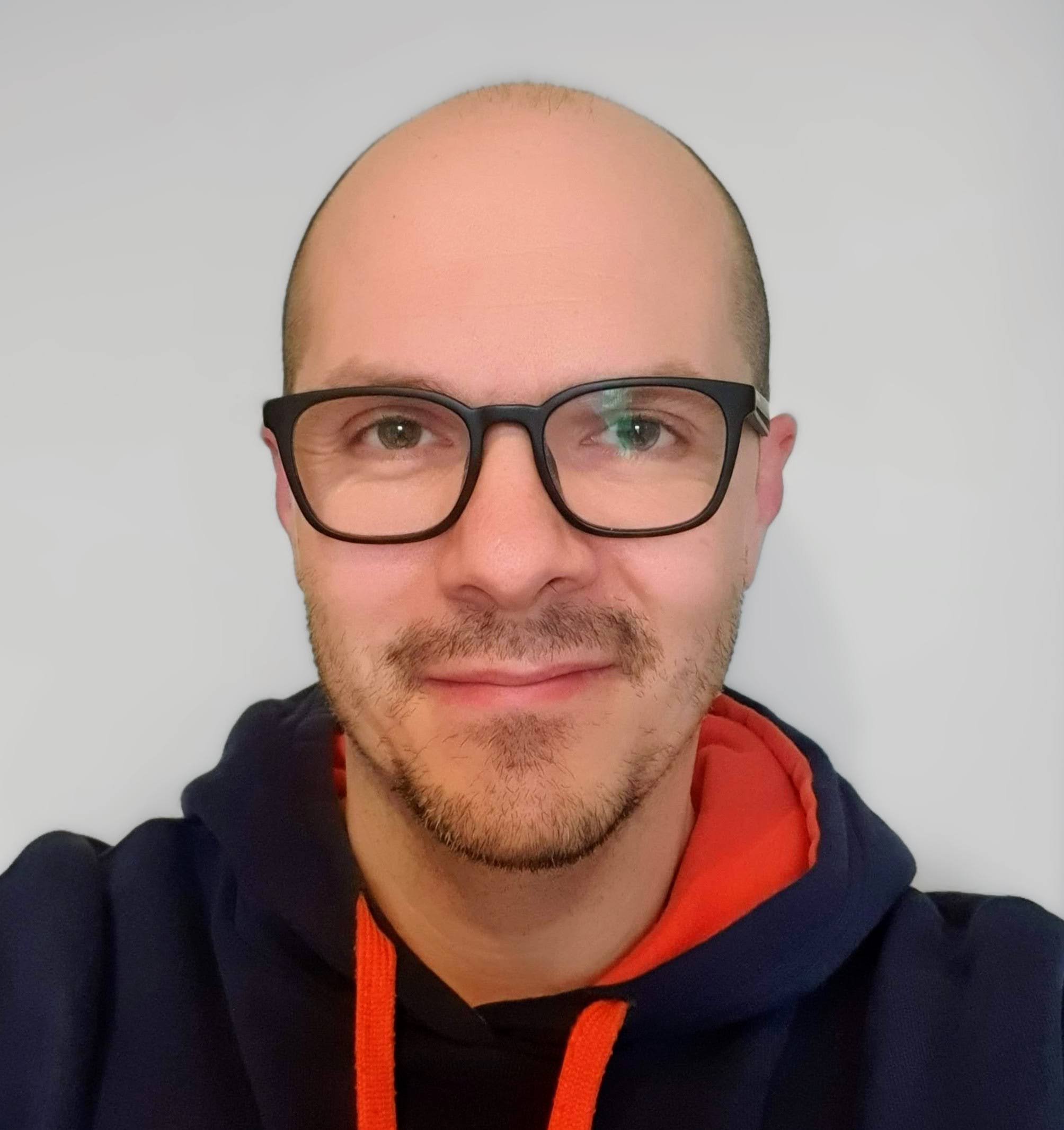
Marco Tozzi
Devops Manager at Aruba S.p.a.
Oltre 20 anni di esperienza nel mondo IT, durante i quali ho sviluppato una grande passione per l’innovazione e per gli strumenti che aiutano a lavorare meglio e in modo più efficiente. Mi piace esplorare nuove tecnologie e soluzioni, in particolare nel contesto DevOps, dell’automazione e delle pratiche collaborative perché credo fermamente che l’innovazione non sia solo tecnica, ma anche un modo di migliorare il lavoro quotidiano di tutti.
To cloud, or not to cloud?
Oggigiorno il cloud è stata la scelta preferita per le applicazioni che richiedono elasticità, scalabilità ed efficienza dei costi. Tuttavia, cosa succederebbe se si potessero ottenere questi vantaggi senza le complessità dell'infrastruttura cloud? Kamal mira a democratizzare le esperienze di deployment simili al cloud. È possibile distribuire facilmente applicazioni web su varie piattaforme, dalle VPS ai cloud provider fino ai server bare-metal autogestiti.

Roberto Franchini
Principal Software Engineer @ ArcadeData
Uno stagionato ingegnere del software con oltre 25 anni di esperienza. Il mio percorso mi ha portato dall'era monolitica alla rivoluzione dei microservizi, dalla fatica manuale dei deployment bare-metal alla magia automatizzata delle architetture cloud-native. Mi sono immerso nelle profondità dell'ingegneria del software, costruendo pipeline di dati ad alte prestazioni e ho padroneggiato le complessità dei sistemi di database relazionali e non. E tutto questo andrà perduto come lacrime nella pioggia.
Platform Engineering's Inferno
Imagine yourself as Dante, lost in a Deep Dark Forest. You are not alone, I will be your Virgil, your guide through the Engineering Hell. This Platform Engineering dream can, and will, be turned into a nightmare if tools and practices are adopted without a rationale and no focus on culture. Following an oneiric path, inspired by the Divine Comedy, we will travel through each Hell ring, examining all the different ways to fall into the flame pit of Engineering Hell, all the demons you can encounter on the way to reach the peaks of your well deserved Platform Engineering Eden.

Matteo Bianchi
CNCF Ambassador
Matteo is a CNCF Ambassador and Cloud Native aficionado, a former startup CTO, DevRel and Solution Architect. Kubernetes open source contributor, part of the release team for v.1.31 and Comms Release Lead for v.1.32. Hacker, builder and problem solver by nature. Singing in a metal band whenever there's nothing to fix in the cloud. @mbianchidev on (almost) every social media.
Automate or stagnate: surviving the era of continuous updates
Mantenere aggiornate le versioni dei software sta diventando una sfida, soprattutto quando gli strumenti non riescono a tenere il passo con ecosistemi software in continua evoluzione. Esaminiamo i limiti e i rischi legati alla mancanza di automazione nella gestione delle dipendenze e il percorso verso la creazione di pipeline di aggiornamento robuste e versatili utilizzando lo strumento open source Updatecli.

Giovanni Toraldo
DevOps Engineer @ Hyland
Appassionato di tecnologia e del mondo Open Source. Attualmente lavora come DevOps Engineer presso Hyland, nella divisione Alfresco, dove si dedica allo sviluppo e alla manutenzione degli strumenti di deployment, tra cui i playbook Ansible e gli Helm Charts. La sua attività si focalizza anche sull'automazione dei processi, contribuendo a migliorare l'efficienza e la scalabilità delle attività di sviluppo software.
Leveraging PostgreSQL 17's JSONB for Enhanced Data Modeling and Performance
JSONB has been part of PostgreSQL since the ancient version 9.4. PostgreSQL 17's lates JSONB improvements provides a flexible and efficient way to store and query semi-structured data. Its indexing capabilities and optimized storage mechanisms make it ideal for handling large volumes of complex data, such as configuration settings, user profiles, and log data. While NoSQL databases like MongoDB have gained popularity, recent breaking changes and performance issues have raised concerns about their long-term suitability as a primary data storage solution. PostgreSQL's mature ecosystem, strong community support and proven reliability offer a compelling alternative for handling complex data workloads. The audience will learn about the JSONB functionalities available in PostgreSQL and the latest improvements making it a powerful allied to write applications at scale.

Federico Campoli
Freelance PostgreSQL consultant
Federico is a freelance consultant with long experience on PostgreSQL. He started his career as Oracle DBA in 2004 and fell in love with PostgreSQL in 2007. Previously he worked as data engineer for Transferwise. After several years spent in the UK he is now back in Italy. He’s an amateur jazz guitarist.